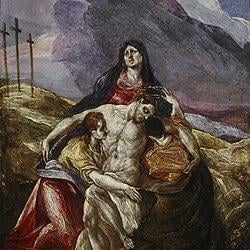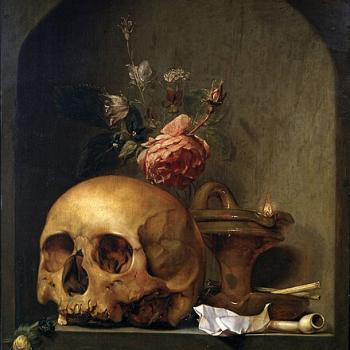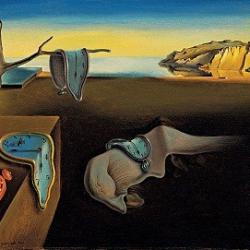Over the last several posts I have touched upon the topic of death.
DEAD?
When I’m dead lay me down
Bury me beneath the ground
Plant me in the dirt so fresh
So worms can nibble at my flesh
I’ll deteriorate I’ll corrode
As my body is growing old
Breathless, motionless beneath the Earth
Quite unlike the day of my birth
To worms and bugs I’ll pay a toll
But think on the splendor of my soul
The 4 Last Posts About Death
First I talked about Practicing for Death
Then about Cleaning up after Death
I then asked the question Will You Be Remembered at your Death?
And shared my Fathers’ Eulogy.
Remember everyone we meet is someone who is going to be around forever.
We are constantly Joking With Immortals
as we sit in The Waiting Room.
Now I want to help meditate on Preparing for Death.
I write this on the day I attend the funeral of my friend Pattie and her family. See Cleaning Up above…
The church asks us to reflect on the four last things.
Death
Judgement
Heaven
Hell
Lets reflect on these upcoming events in our existence with the help of good Catholic writers.
Death

The first thing in preparing for death is the practice of Memento Mori
Memento mori or “remember your death” is a phrase that has been long associated with the practice of remembering the unpredictable and inevitable end of one’s life.
Even if one does not believe the Christian message of salvation, the rich, ancient tradition of remembering death can bring joy, focus, and fruitfulness to anyone’s life.
Theresa Aletheia Noble FSP Remember Your Death: Memento Mori Lenten Devotional (2019) Pauline Books and Media
Sr. Theresa further explains.
Death is a reality of human life; a reality that you or I could face tomorrow, or even sooner. Nobody is guaranteed another day on this earth.
“Any day we spend not contemplating and preparing for that reality, even if it’s just for a moment, is a day wasted,” she said.
Brian Fraga, Memento Mori: A Meditation on Death (December 5, 2019) On the Catholic Beat @ Patheos Catholic
Death is not a pleasant comforting thing, it is a real grim reality.
And whether one believes in an afterlife or not, pretending that death is not death is not helpful, in the case of bereavement. It sounds like a denial that loss is real, that grief is real. And this attitude of evasiveness may even actively contribute to the harm.
My father did not pass on. He is dead. His body lies in a wooden box, in a concrete vault six feet beneath the sod, in the little cemetery on the hill that I can see from my kitchen window. This is not a flutter of angel wings. This is real as dirt and stone.
Rebecca Bratten Weiss, How We Speak About Death (May 11, 2020) Suspended in Her Jar @ Patheos Catholic
After death comes…
Judgement

All that we have ever done in our life will be presented before our eyes together with Jesus. Nothing will be hidden. Not only will we see our actions, omissions, words, but we will even see our thoughts as well as the most intimate secrets and intentions of our hearts! Indeed this is the moment of truth. If you like Judgment can be compared to “Movie day”. The huge white screen will be set up; both you and Jesus will be seeing the film. You and just you will be the principal actor in this history and drama of your life. Obviously, the mere thought of our upcoming judgment before Jesus the Lord should shock us into reality and motivate us to renounce all that is dishonest, dirty, underhanded, and deceitful in our lives— knowing full well that this will be shown in graphic detail before the eyes of God Himself.
Fr. Ed Broom, OMV, Remember the Last Things (February 3, 2015) Catholic Exchange
Father Mike explains it even further…
After judgement we go to one of two final places.
Hell

First it is good to know that hell is real.
“Hell is a reality. It is a supernatural fire and not physical. It cannot be compared to fire that burns wood or charcoal… Continue preaching about hell because Our Lord himself spoke about hell, and it is in Sacred Scripture. God does not condemn anyone to hell. God gave men the liberty to choose, and God respects this human liberty.” [Christus Magazine Interview] Philip Kosloski, 7 Powerful quotes from Fatima visionary Sister Lucia (February 16, 2017) Aleteia
Our dear Pope Francis reminds us
Our Lady foretold, and warned us about, a way of life that is godless and indeed profanes God in his creatures. Such a life—frequently proposed and imposed—risks leading to Hell. Mary came to remind us that God’s light dwells within us and protects us. —Homily, Mass of the 100th anniversary of the apparitions of Fatima, May 13, 2017; Vatican Insider
It’s vitally important to know that people could go there. That YOU could go there.
We may not want to think about hell, but we cannot deny it as an eternal reality for those who reject God’s mercy
If the devil will be cast into a condition where he experiences eternal torment, and Jesus says damned human beings will be cast into that same condition, then we can reasonably conclude that human beings who reject God’s offer of salvation will experience that same eternal torment. That’s why it’s so important to preach the good news of salvation in Jesus Christ, as St. Peter tells us that God, “is forbearing toward you, not wishing that any should perish, but that all should reach repentance” (2 Pet. 3:9).
Trent Horn, Yes, Hell Is Real and It Is Eternal, (September 5, 2019) Catholic Answers
You go to Hell if you die in a state of Mortal Sin. This consists of …
- Grave Matter
- Knowing something is Grave Matter.
- Giving full consent to the Grave Matter in question.
How many people go there?

Most of Humanity?
Only some of Humanity?
Half and Half?
Many catholic saints and theologians have pondered this since the beginning of the church.
A good many have said YES most of humanity is damned.
A small amount has said NO most go to heaven.
The church’s official definition is
WE DON’T KNOW
Peter Kreeft says it better then anyone I know on this topic.
Jesus says the way to hell is broad and many find it and that the way to heaven is narrow and few find it. And he means it: you don’t get to heaven simply by being born, by being nice, or by oozing into an eternal growth experience. But “few” here does not mean that less than half of mankind will be saved. For God speaks as our Father, not our statistician. Even one child lost is too many, and the rest saved are too few. The good shepherd who left his ninety-nine sheep safe at home to rescue his one lost sheep found even 99 percent salvation too “few”.
– Peter Kreeft, Hell (Feb 28 2018) Crossroads Initiative
It’s also in our best interest not to speculate on the matter.
The search for numbers in the demography of hell is futile. God in His wisdom has seen fit not to disclose any statistics All told, it is good that God has left us without exact information. If we knew that virtually everybody would be damned, we would be tempted to despair. If we knew that all, or nearly all, are saved, we might become presumptuous. If we knew that some fixed percent, say fifty, would be saved, we would be caught in an unholy rivalry. We would rejoice in every sign that others were among the lost, since our own chances of election would thereby be increased. Such a competitive spirit would hardly be compatible with the gospel.
We are forbidden to seek our own salvation in a selfish and egotistical way. We are keepers of our brothers and sisters. The more we work for their salvation, the more of God’s favor we can expect for ourselves. Those of us who believe and make use of the means that God has provided for the forgiveness of sins and the reform of life have no reason to fear. We can be sure that Christ, who died on the Cross for us, will not fail to give us the grace we need. We know that in all things God works for the good of those who love Him, and that if we persevere in that love, nothing whatever can separate us from Christ (cf. Romans 8:28-39). That is all the assurance we can have, and it should be enough.
Avery Cardinal Dulles, S.J. The Population of Hell (May 2003) First Things
Before we get to the destination of Heaven, we have to first touch on the topic of
Purgatory
There is no better Saint to touch on this topic then St. Catherine of Genoa as explained by writer Joe Tremblay.
After having received a vision of purgatory, St. Catherine of Genoa could not say enough about the happiness which is to be found there. Of course, the Saint did not mince words about the pain souls experience as well. In her treatise on purgatory, she wrote, “I believe no happiness can be found worthy to be compared with that of a soul in Purgatory except that of the saints in Paradise; and day by day this happiness grows as God flows into these souls, more and more as the hindrance to His entrance is consumed. Sin’s rust is the hindrance, and the fire burns the rust away so that more and more the soul opens itself up to the divine inflowing.”
St. Catherine depicts purgatory not so much as a place but rather as a process through which the effects of sin – referred to as the “rust of sin” – are purged away. Although the idea of divine punishment is not to be disregarded in her account, what comes to the fore, nevertheless, is the application of God’s burning love for the soul. This is to be the context in which purgatory is considered. The idea of a torture chamber, portrayed in so many books, is not the main theme in her writings.
Joe Tremblay, St. Catherine of Genoa’s vision of Purgatory (November 02, 2012) Catholic News Agency
Now we arrive at
Heaven.
It is a place we hope we end up. It is a place we hope to go to.
“Paradise is not a fairy tale, nor is it an enchanted garden. Paradise is an embrace with God, (who is) infinite Love, and we enter thanks to Jesus, who died on the cross for us,”- Pope Francis
Timothy Flanders gives us an expanded explanation and lets us know that the ones in heaven are rooting for us.
The great glory of the saints is the burning charity they hold toward the wayfaring soul — even us sinners. They have not ceased to yearn for your salvation since before you called upon them for aid. They still labor — if it can be called labor — for your eternal felicity and joy. At one with God, their only longing is to share this peace with more souls. Our Blessed Mother above all tenderly desires your union with all the saints in Christ. As the perfect mother, she burns with love for your soul.
Consider the sound of their chorus to which they invite you, rising infinitely in praising the mercy of God. The most beautiful and exquisite music you have ever heard is like foul noise in comparison. Once, St. Francis heard the sound of an angel playing an instrument, and he nearly died for joy [5]. Consider the beauty of the voice of the Virgin Mother above all the rest. De Sales says, “even as the newly-fledged nightingale learns to sing from the elder birds, so by our sacred communing with the Saints we shall learn better to pray and sing the praises of the Lord” [6].
Consider, too, the hope of finding in that heavenly country the loved ones we have lost. The baptized children who were lost before the age of reason will run to you. Perhaps others whose loss you have suffered will greet you — a departed father or mother or even a spouse. If they have gained eternal life, then without a doubt they have longed for you and prayed for you as all the saints. Consider the love of all the saints, beckoning you to lift your heart to paradise and come.
Timothy Flanders A Reflection on the Glory of Paradise (December 30, 2019) One Peter Five
Conclusion
How to achieve Heaven and avoid Hell is a broad topic and beyond the scope of this article.
Simply put, to unite yourself to Christ through his Church by the Sacraments is the easiest, quickest, most sure way to achieve these goals.
What about those who never come to the light of faith as preached by the church?
I’ll let St. Pope John Paul 2 end with his comments on this topic.
“Since salvation is offered to all, it must be made concretely available to all. But it is clear that today, as in the past, many people do not have an opportunity to come to know or accept the gospel revelation or to enter the Church. . . . For such people, salvation in Christ is accessible by virtue of a grace which, while having a mysterious relationship to the Church, does not make them formally part of the Church, but enlightens them in a way which is accommodated to their spiritual and material situation. This grace comes from Christ; it is the result of his sacrifice and is communicated by the Holy Spirit. It enables each person to attain salvation through his or her free cooperation”
Pope John Paul II, Redemptoris Missio, reiterates this message: (no. 10).













